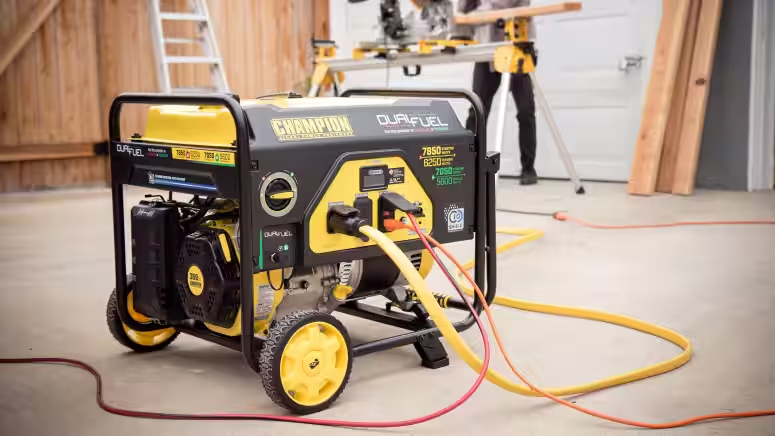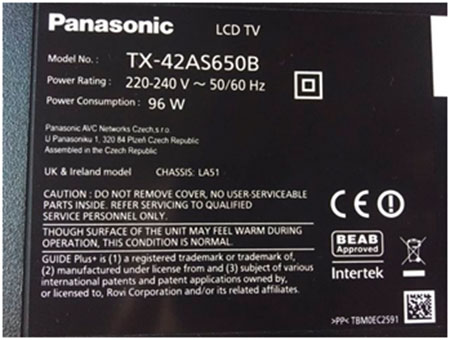Are you thinking about investing in a generator for your Florida home?
Owning a generator is incredibly helpful when it comes to weathering storms, power outages, or even just getting through the hottest days of summer.
In this blog post, we will discuss the basics of calculating which size generator works best with your home’s energy requirements so that you can keep the lights on and avoid running into unexpected surprises.
The Short Version: Just Get a Portable Generator

If you don’t want to go through the hassle of figuring out exactly how much power your generator needs, it might be best for you to get a portable generator. These are typically smaller and less powerful than stationary generators, but they can still provide enough power for most normal household appliances such as lights and microwaves. Plus, they’re usually cheaper than buying a stationary generator that is sized just right for your home’s energy requirements.
Calculate the total wattage of your appliances
Think of everything that you’re going to want to power in the event of a power loss from a hurricane. This includes all appliances, lights, air conditioners, and electronics. Next, you’ll need to calculate the total wattage of each appliance. To do this, look for the wattage rating on each device’s sticker or in its manual.
How to Read the Electric Info on Your Appliances
It’s usually straightforward: Look for a number in front of a capital W and that’s the wattage consumption of the device.

If you have a more complicated sticker with multiple W’s like this refrigerator for example.
To determine the wattage of your refrigerator, look at the sticker inside your fridge and search for the number of volts and amps. Multiply these numbers to determine how many watts your fridge uses. For example, an old refrigerator could have a 115 V and 6.5 amps, for a total of 747.5 watts.
Add up the wattages
Now that you have calculated the individual wattages of each appliance that will be powered by your generator add them up to get a total wattage.
For example if you are powering an air conditioner (that requires 1200 watts) two fans (each requiring 150 watts) and one lightbulb (which requires 75 watts), then your total wattage would be 1525 watts.
Calculate your Generator’s Power Requirements
Now that you have calculated the total wattage of all appliances and electronics that need to be powered by your generator, you can use this number to determine what size generator will work best for your needs. You’ll want to get a generator that is powerful enough to handle the total wattage but not too powerful as it will be a waste of money.
Choose the right size generator for your needs
Now that you know your total wattage, it’s time to choose a generator to meet those requirements. A good rule of thumb is to pick a generator that’s at least 25% higher in wattage than what you calculated. This will account for any surges or spikes in energy usage during operation. For example, if you calculate a total wattage of 1525 watts, then you should look for a generator with 2000 watts or more.
Determine the type of generator you need – portable or stationary
When it comes to generators, it’s important to choose the right type for your needs.
Portable generators offer flexibility and mobility, making them great for outdoor activities or emergencies.
They’re also way less expensive than stationary generators and easier to store when not in use.
On the other hand, if you have a commercial enterprise or a large home that requires a lot of power, a stationary generator may be a better option. Stationary generators are designed to provide continuous, reliable power for extended periods of time and are often hardwired into a building’s electrical system. Ultimately, the type of generator you choose will depend on your specific needs and the power requirements of your home or business.
Use a generator sizing calculator to help you decide on the right size for your needs
Choosing the right size generator can make all the difference in keeping the lights on during a power outage. However, determining the appropriate size can be a daunting task. That’s where a generator sizing calculator comes in handy.
These calculators take into account your specific power needs, including the appliances and electronics you want to power, as well as any projected surges in energy usage. With this information, you can easily determine the appropriate generator size and protect your home from unexpected power failures.
Conclusion
Figuring out how much power your Florida home will need from its generator doesn’t have to be difficult. By calculating the total wattage of each appliance and device that needs to be powered and then finding the right sized generator for those requirements, you will be able to rest easy knowing that in times of inclement weather or power outages, your generator will provide the energy you need.






